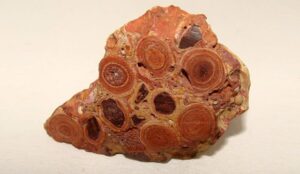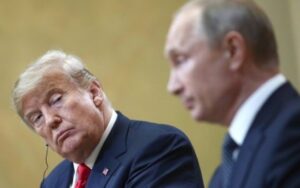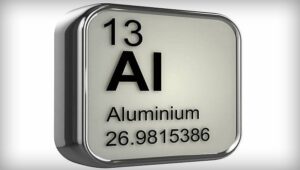
The Ukrainian Weather Center warns of deteriorating weather conditions in a number of regions on Monday, January 13.
“On January 13, icy conditions are expected on the roads in the western, northern and Vinnytsia regions (danger level I, yellow),” the report says.
The weather conditions may lead to traffic difficulties on certain road sections.

In 2024, Ukraine increased imports of aluminum ore and concentrate (bauxite) in physical terms by 77.4% year-on-year to 35.173 thousand tons.
According to statistics released by the State Customs Service, bauxite imports in monetary terms increased by 74% to $4.107 million during the period.
The imports came mainly from Turkey (78.48% of supplies in monetary terms), China (19.48%) and Spain (1.9%).
Ukraine did not re-export bauxite in 2024, as well as in 2023.
As reported, in 2022, Ukraine reduced imports of aluminum ore and concentrate (bauxite) in physical terms by 81.5% compared to the previous year, to 945.396 thousand tons. Imports of bauxite in monetary terms decreased by 79.6% to $48.166 million. Imports were mainly from Guinea (58.90% of supplies in monetary terms), Brazil (27.19%) and Ghana (7.48%).
In 2023, Ukraine imported 19,830 thousand tons of bauxite worth $2.360 million.
Bauxite is an aluminum ore used as a raw material to produce alumina, which is used to make aluminum. They are also used as fluxes in ferrous metallurgy.
Mykolaiv Alumina Plant (MAP) imports bauxite to Ukraine.

Switzerland is ready to host a meeting between Presidents Donald Trump and Vladimir Putin if they request it, Le Temps reported on Saturday, citing a Swiss Foreign Ministry spokesman.
“Since the Burgenstock summit, Ukraine, Russia and the United States have been regularly informed of our readiness to support any diplomatic efforts aimed at establishing peace,” Le Temps quoted Nicolas Bideau, head of the Foreign Ministry’s communications department, as saying.

In 2024, imports of aluminum and aluminum products increased by 21.7% to $446.006 million (in December – $36.943 million). Exports of aluminum increased by 27.4% to $124.408 million, compared to $8.426 million in December.
Aluminum is widely used as a structural material. The main advantages of aluminum are its lightness, stamping resistance, corrosion resistance, high thermal conductivity, and non-toxicity of its compounds. In particular, these properties have made aluminum extremely popular in the production of cookware, aluminum foil in the food industry, and packaging. The first three properties have made aluminum the main raw material in the aviation and aerospace industries (recently it has been replaced by composite materials, primarily carbon fiber). After the construction and production of packaging, such as aluminum cans and foil, the energy sector is the largest consumer of the metal.

From January 21 to January 25, the night sky will present a rare and magical spectacle – a large-scale parade of planets. Six celestial bodies will be lined up in one line: Mars, Jupiter, Uranus, Venus, Neptune and Saturn. By the end of the month, Mercury will join them, completing the cosmic symphony.
Astronomers assure that a telescope is not required to observe this natural wonder. The main thing is to choose a place away from city lights and wait for a clear sky.
Do not miss the opportunity to witness a rare phenomenon that will remind you of the greatness of the Universe!

In 2024, Ukraine increased its imports of nickel and nickel products by 73.7% compared to 2023, to $26.730 million. In December, imports amounted to $3.058 million. Nickel exports amounted to $602 thousand for the year, and $17 thousand in December.
Nickel is used to make stainless steel and for nickel plating. Nickel is also used in the production of batteries, powder metallurgy and chemicals.